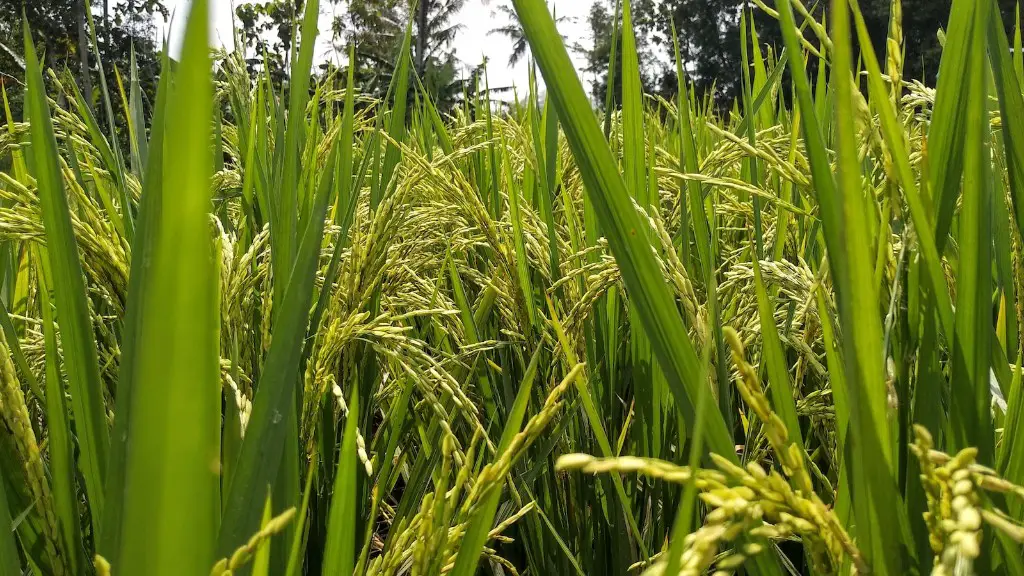Soil pH is a measure of the acidity or alkalinity of soil. It is an important factor in agricultural productivity as it affects the availability of nutrients and the activity of soil microorganisms. Soil pH can be controlled through the application of lime or other amendments.
The pH of soil is a measure of the soil’s acidity or alkalinity. The pH scale goes from 0 to 14, with 7 being neutral. Anything below 7 is considered acidic, and anything above 7 is considered alkaline.
What is soil pH and why soil pH important to farmers?
Soil pH is a measure of the acidity or alkalinity of a soil. The study of soil pH is very important in agriculture due to the fact that soil pH regulates plant nutrient availability by controlling the chemical forms of the different nutrients and also influences their chemical reactions.
Soil pH is a key factor in soil fertility. Maintaining the soil pH at the optimum level will increase the microbiological activity of the soil, and result in better soil nutrient recycling and release.
What happens when soil pH is too high
If your soil is high in alkalinity, it can make it harder for plants to take in nutrients from the soil, which can in turn limit their growth. If you think your soil might be too alkaline, you can test it with a soil pH test kit. If the pH is above 7.0, it is considered alkaline. There are a few ways to lower the pH of your soil, including adding sulfur, using an acidic mulch, or planting acid-loving plants.
Applying lime to soil is a common way to make it less acidic. Ground agricultural limestone is the most commonly used type of lime. The finer the limestone particles, the more quickly it becomes effective. Different soils will require different amounts of lime to adjust the pH value.
Does fertilizer change soil pH?
Different nitrogen fertilizers can have different effects on soil pH. Ammonium sulfate, for example, can make soils more acidic, while urea can make them more alkaline. It is important to know which fertilizer you are using and how it may affect soil pH.
The ideal pH range for growing fruits and vegetables is 60 – 70. Outside of this range, nutrients become less available to your plants, even if they are abundant in the soil.
How do you correct pH in soil?
There are a few things that can be done in order to correct poor soil pH. One is to add limestone to the soil, which is available at most garden centers. Another is to use powdered or pelleted agricultural limestone, which is more commonly used. It’s important not to overdo it with the lime, though, as it is much easier to raise pH than to lower it.
The pH of a soil is a measure of its acidity or alkalinity. Soils with a pH over 75 are considered alkaline, while those with a pH less than 65 are considered acidic. Soils with a pH less than 55 are considered strongly acidic.
What are the signs of poor soil pH in plants
If you notice any of the above mentioned symptoms in your plants, it is likely that the pH of the soil is too low. You can test the soil pH with a soil test kit and, if necessary, raise the pH with limestone.
If you’re looking to add some edible plants to your garden, here are a few of the best options for alkaline soil: asparagus, broccoli, cabbages, kale, collard greens, leeks, marjoram, peas, and pole beans. With a little care and attention, you can enjoy fresh, homegrown produce all season long!
What do farmers do if the soil is acidic?
If the soil is too acidic, farmers can treat it with quick lime or slaked lime to neutralise the effect and make the soil neutral. This will allow plants to grow properly.
The ideal soil pH for most plants is slightly acidic or slightly alkaline. At extreme pH, the availability of some nutrients is decreased, eg phosphorus and molybdenum at low pH, and zinc at high pH; and the solubility of elements toxic to plants is increased, eg aluminium and manganese at low pH.
How does soil pH affect crop yield
Soil pH levels impact crop yield due to nutrient availability. Phosphorus is the nutrient most impacted by soil pH. At high pH levels, calcium and phosphorus tend to bind up with each other. At low pH, aluminum and iron bind up phosphorus and limit the nutrient’s availability.
Acidic soils are caused by a variety of factors, the most common being leaching from rainfall, decomposition of organic matter, and formation of strong acids. All of these factors work together to create an acidic environment that can be detrimental to plants and other organisms.
Does manure increase soil pH?
Manure is a good source of nutrients for plants, but it is not effective in changing the pH of soil. The pH of manure is typically between 8 and 12, but this range is not effective in changing the pH of soil, which ranges from 0 to 14. The best way to change the pH of soil is to add lime or other amendments to the soil.
If the pH of water is too high, it can cause problems with nutrient absorption by plants. High pH water can also raise the pH of soils or potting mixes, which can lead to nutrient deficiencies.
Final Words
The soil pH in agriculture is the measure of the acidity or alkalinity of the soil.
The soil pH in agriculture is a measure of the soil’s acidity or alkalinity. A pH of 7 is considered neutral, while a pH below 7 is considered acidic and a pH above 7 is considered alkaline. The ideal pH for most crops is between 6 and 7.




